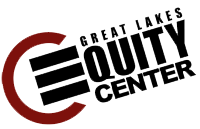My Sister’s Locker: Creative Professional Learning for School Climate Improvement Using Collaborative Storying
The purpose of this article is to present a study using an approach to creative professional learning based on forum-based role-player game (RPG) storying, which pushes the boundaries of both professional learning methods and performative narrative analysis toward collaboratively opening up space for improving school climate. This storying began with three teens who, during interviews, presented their experiences of unjust and inequitable treatment in public schools as related to ability, disability, race, and gender. Three educators then participated in collaborative storying, which afforded the suspension of disbelief and the imagining of potentialities through affect and embodiment of characters. Following the storying process, the educators participated in a focus group where they made several connections between the characters and personal experiences as both intersectional students and teachers. The application of this, or similar RPG storying activities, in professional learning was discussed, with an emphasis on the potential opportunity for teachers to learn/unlearn about students who live very different lives than themselves (e.g., gifted, different races, and different religions). Using RPG storying as a creative learning strategy opened the activity to difference, leading to reflection on values and norms and suggestions for practical applications in learning environments.ABSTRACT
Contributor Notes
Author Bio
Ananí M. Vasquez, PhD (Arizona State University), is a former elementary teacher and teacher coach who combines her experiences in general, bilingual, gifted, and special education(s) to envision an inclusive education. She draws on creativity theory, disability studies in education, the neurodiversity paradigm, process philosophy, and arts-based inquiry while working with others toward post-oppositional educational transformation. Ananí has developed various strategies for creative professional learning experiences that encourage teachers to reflect on ableist structures, routines, and practices in schooling and to envision possibilities for shifting classroom interactions in their own contexts. She is coeditor of Writing and the Articulation of Post-Qualitative Research (2023) by Routledge.
Taylor Halliday is a Gifted Intervention Specialist with the Lima City Schools in Lima, Ohio. She holds a Bachelor of Arts in Education from Hope College and a Master’s in Integrated Curriculum from the American College of Education. In her current role, she focuses on curriculum development and education for a diverse population of students, enabling her to tailor educational experiences based on intersectionalities. When she is not teaching, she enjoys spending time with her husband and their four sons.
Jesse Ha, PhD (Arizona State University), is a postdoctoral fellow at the University of California, Los Angeles. He is currently working within UCLA’s Center X on the STEM + C3 grant that focuses on preparing preservice STEM teachers to integrate computational thinking and equity-centered practices into their pedagogy. His research interests include STEM/CS education, cognitive sciences, and asset-based pedagogies.

